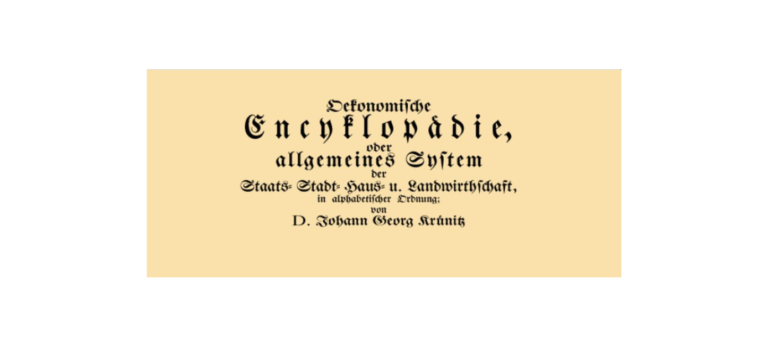
Digital edition of the economic-technological encyclopaedia by J. G. Krünitz, published in 242 volumes from 1773 to 1858.
Short description of the project
The DARIAH-DE Repository is a central component of the DARIAH-DE data federation architecture, which aggregates various services and applications and makes them easy to use. The repository enables research data to be stored sustainably and securely, tagged with metadata and retrieved using the Generic Search. Research data can be imported using the DARIAH-DE Publikator.
Project content
The DARIAH-DE repository, a digital long-term archive for research data in the humanities and cultural studies, went live in December 2017. Each object described and stored in the DARIAH-DE repository is given a unique and permanently valid persistent identifier (a DOI), which is used to reference, cite and keep it available in the long term. In addition, the DARIAH-DE repository enables the sustainable and secure archiving of data collections. Data import is convenient and intuitive with the DARIAH-DE Publikator.
Further information on the DARIAH-DE Repository and the use of the Publikator as well as technical documentation and API descriptions of the individual repository services can be found on the documentation page of the repository server.
The DARIAH-DE repository is being further developed as part of the NFDI consortium Text+. It is currently (2024-2027) certified with the CoreTrust Seal.
Website: https://repository.de.dariah.eu/?lang=en
E-Mail: info@de.dariah.eu
Add your DH research project to the project showcase by submitting a short project description via the web form. Enter project data, a brief description, a graphic or visualization as well as a detailed description of the project content with technical assignment, addressees, added value, project managers, funding information and duration.

Digital edition of the economic-technological encyclopaedia by J. G. Krünitz, published in 242 volumes from 1773 to 1858.
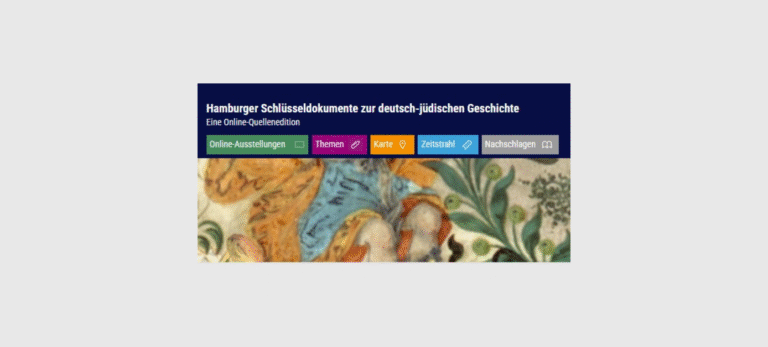
Die Edition „Hamburger Schlüsseldokumente zur deutsch-jüdischen Geschichte“ soll sowohl einem akademischen Publikum als auch der interessierten Öffentlichkeit einen niedrigschwelligen Zugang
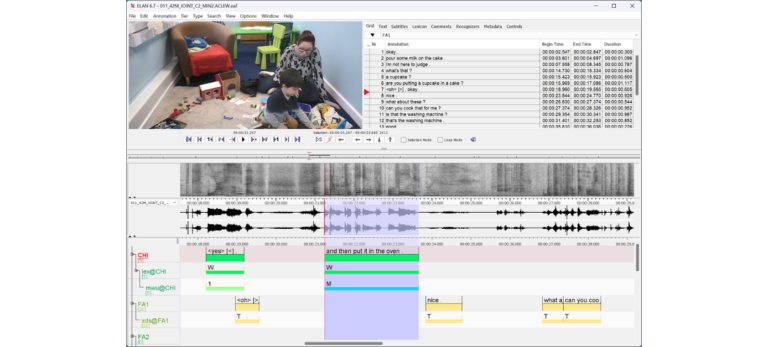
ELAN wird am Max-Planck-Institut für Psycholinguistik im Sprach-Archiv (TLA – The Language Archive) entwickelt. Es wird in der Programmiersprache Java
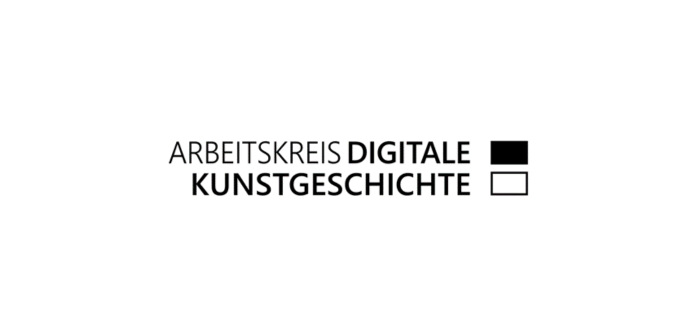
Der Arbeitskreis organsiert das #ArthistoCamp, die Schriftenreihe Computing in Art and Architecture und den #arthistocast – der Podcast zur Digitalen
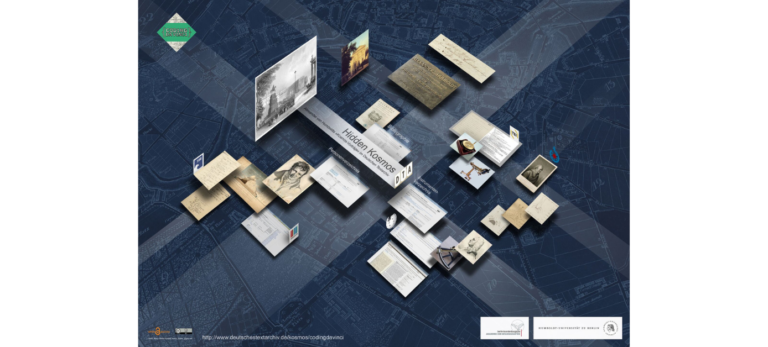
Das Hidden Kosmos – Reconstructing Alexander von Humboldt’s »Kosmos-Lectures« widmete sich von 2014–16 der Ermittlung und Verzeichnung, Bild- und Volltext-Digitalisierung
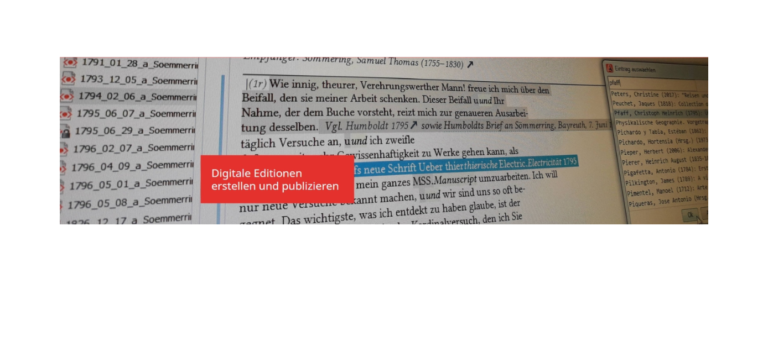
Die digitale Arbeitsumgebung ediarum ist eine aus mehreren Softwarekomponenten bestehende Lösung, die es Wissenschaftler*innen erlaubt, Transkriptionen von Manuskripten und Drucken

Der Arbeitskreis organsiert das #ArthistoCamp, die Schriftenreihe Computing in Art and Architecture und den #arthistocast – der Podcast zur Digitalen
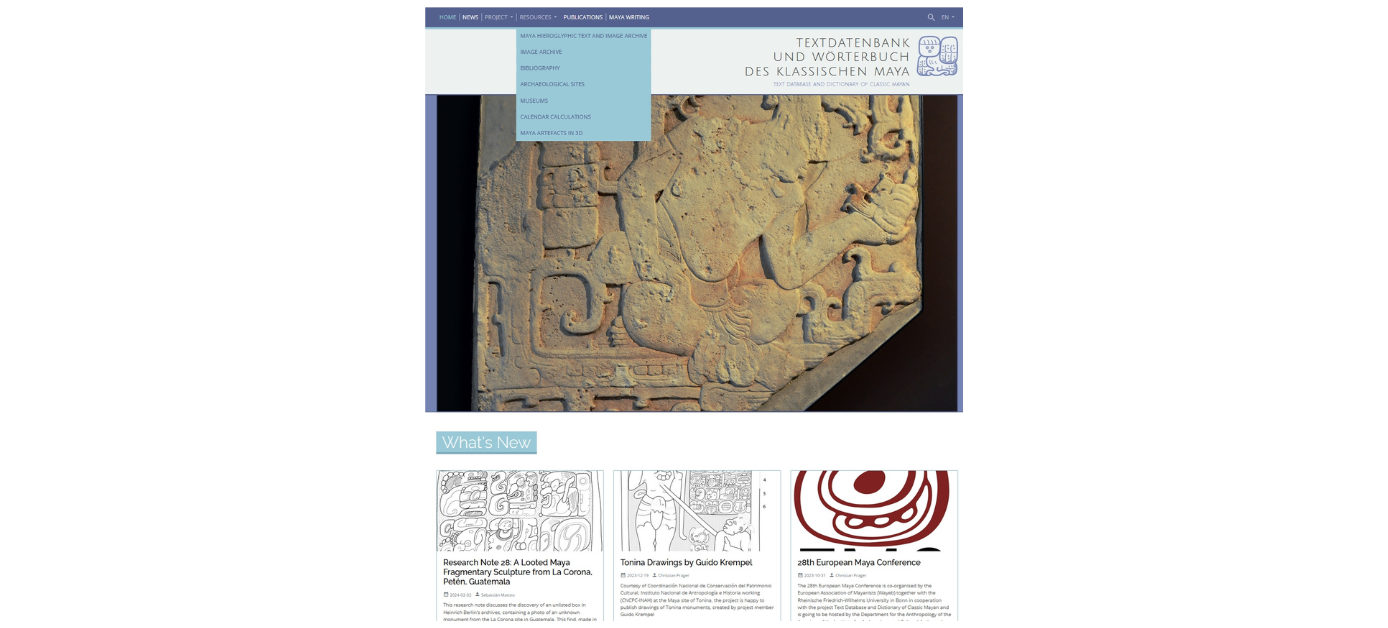
The long-term project funded by the NRW Academy of Sciences and Arts and the Union of German Academies at the University of Bonn explores the script and language of the Classic Maya culture. It aims to document Maya hieroglyphic inscriptions in a database and to catalog the hieroglyphic language in a digital dictionary. Sources such as literature, archives, and photo collections are researched, processed in the virtual research environment TextGrid, and published online. Information and images of inscriptions are stored in an object database and in the "Maya Image Archive," an open-access repository containing over 15,000 images, freely accessible to users.
Wir verwenden Cookies und ähnliche Funktionen zur Verarbeitung von Daten. Die Zustimmung ist freiwillig und kann jederzeit widerrufen werden.